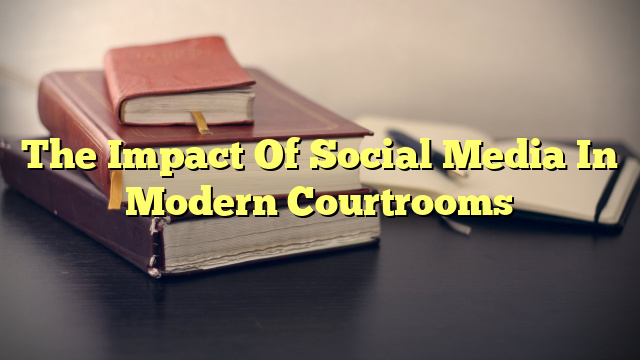The Impact of Social Media in Modern Courtrooms
Table of Contents
Introduction:
The use of social media in modern courtrooms is an increasingly relevant and important tool used by the legal professions. Social media has the potential to improve the efficiency, accuracy and fairness of court proceedings, creating a better environment for both attorneys and court users. The purpose of this paper is to discuss the impact of social media on court proceedings and its implications for the legal system.
History of Social Media in Courtrooms:
The use of social media in court proceedings is a relatively new phenomenon. In the early days of the internet, the websites that made up the so-called World Wide Web were primarily used for communication, allowing people to interact and converse with one another in a virtual environment. It wasn’t until the late 1990s and early 2000s that companies such as Facebook and Twitter began to emerge, offering users a platform to share information and opinions with a much wider audience.
In the legal profession, attorneys began to realize the potential of using social media platforms to their advantage. In the early 2000s, lawyers began using social media to research case law, communicate with potential clients, and even to advertise their services. It wasn’t until the 2010s, however, that social media began to be used in court proceedings. This was aided by the emergence of new technologies such as smartphones and tablets, which allowed lawyers and judges to access social media platforms in the courtroom.
Impact of Social Media on Courtrooms:
The impact of social media on modern courtrooms has been significant. In terms of efficiency, the use of social media in courtrooms has allowed for quicker and easier access to pertinent information during trial proceedings. This can include anything from evidence presented by both sides, to background information about witnesses or defendants. This can speed up the trial process, allowing for a more efficient and accurate ruling from the judge.
In terms of fairness, the use of social media has been a great boon to the legal profession. This is because it has allowed attorneys to stay up to date on the latest developments in the law, as well as gain insight into the opinions of other attorneys and members of the public. This can help attorneys to better prepare their cases and ultimately help ensure that their clients get a fair trial.
Finally, the use of social media in courtrooms has also been beneficial in terms of public perceptions. Social media has allowed the public to follow the progress of trials, giving them access to information that they may not have otherwise been able to access. This can help to create a more informed citizenry and can ultimately help to create a more just society.
Conclusion:
In conclusion, the use of social media in modern courtrooms has been beneficial in a number of ways. From improving the efficiency of trials to increasing the fairness of proceedings, social media has had a positive impact on court proceedings. As technology continues to advance, it is likely that the use of social media in courtrooms will become even more prevalent in the years to come.


Social media use is increasingly impacting courtrooms’ decisions.
Social media is having a huge negative impact on modern courtrooms. It’s affecting fairness and the ability for justice to be served.
While I understand the potential impact of social media in modern courtrooms, I think it can do more harm than good in terms of a fair trial.
Social media has become an influential factor in modern courtrooms. #internetaccess #evidence
Social media can be a powerful tool in the modern courtroom, having a major impact on cases and verdicts.